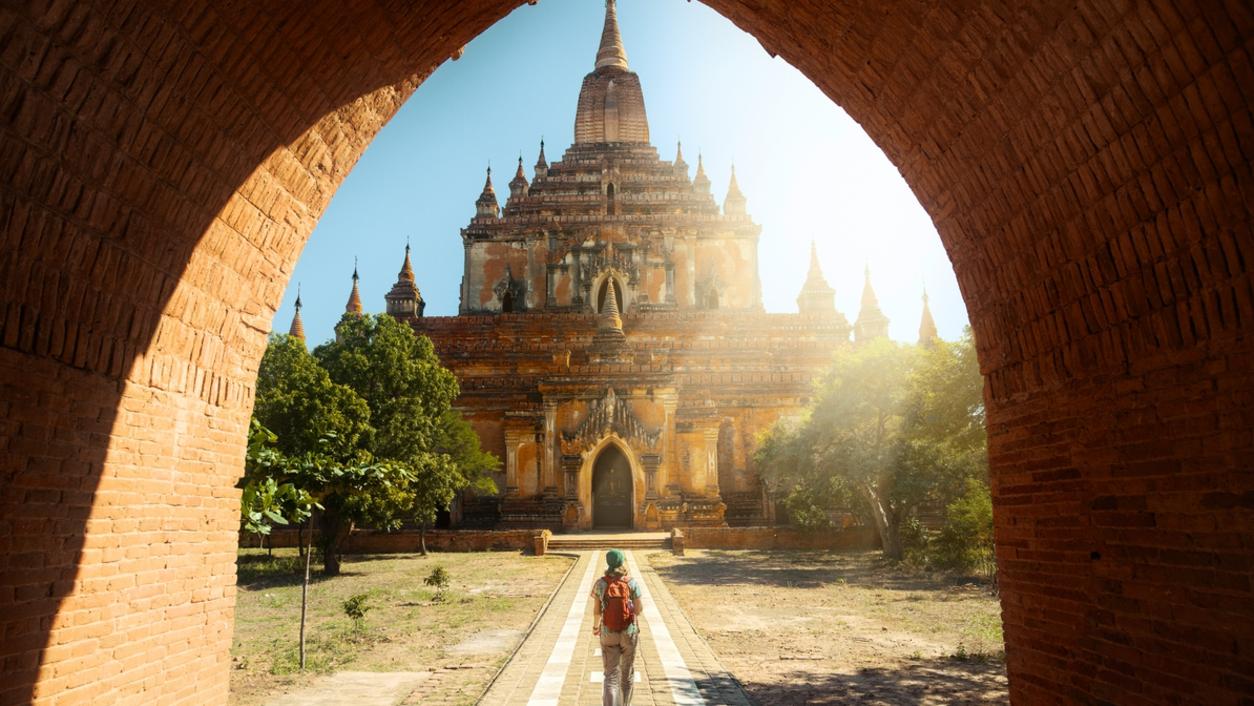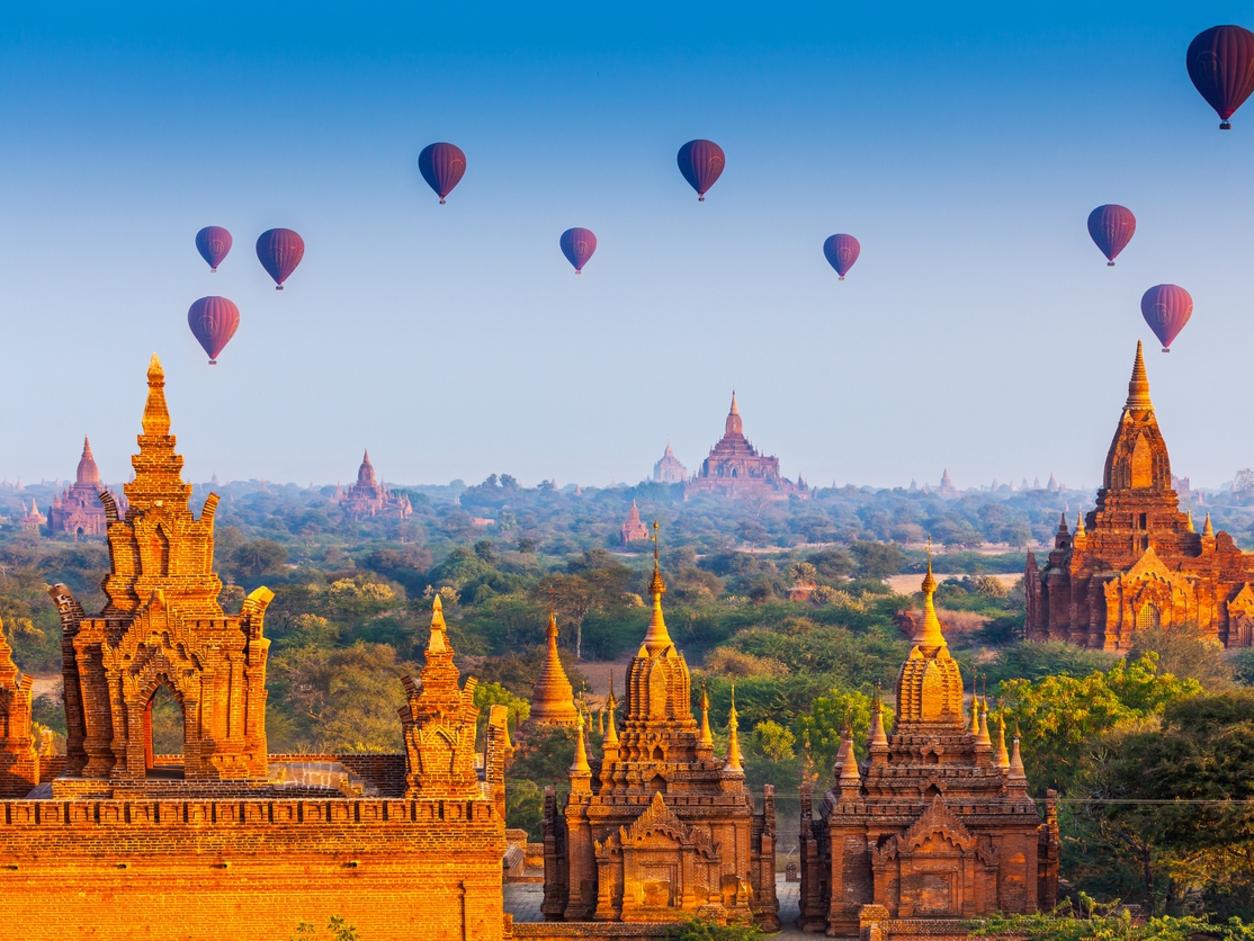Travellers Should Consider Both Sides of the Issue
There are valid arguments on both sides of the debate around visiting Myanmar. On one hand, tourism brings economic benefits that improve livelihoods, but it could also be seen as supporting a government accused of human rights abuses. Any traveller considering Myanmar must thoughtfully weigh these complex factors.
Local Communities Rely on Tourism for Income and Development
When Myanmar opened to foreign visitors in 2012, many ordinary families invested their savings to welcome tourists. Villages near Inle Lake adapted homes and added showers to accommodate Western guests. Families in Bagan and Kalaw entered tourism-related businesses like bike rentals, tours, and restaurants. Hotel chains created jobs in cities. Initiatives to protect wildlife and the environment rely on tourism dollars. If numbers decline drastically, these livelihoods are at risk. Simply put, a million locals work in tourism , depending on a steady season to support their families with clean, regular work instead of poverty or aid. Avoiding Myanmar hurts these people most of all.
Boycotting May Not Influence the Government but Could Solidify Support
While the tourism boycott aims to pressure the Myanmar military, there is doubt it achieves this goal. Isolated and poor populations may see it as another Western imposition, strengthening the military’s control and narrative. A visiting journalist pointed out most Burmese prioritize local issues over faraway human rights concerns. Instead of changing policies, diminished tourism leaves citizens struggling, less educated on diversity, and more reliant on the strongmen promising stability. International engagement through travel exposes locals to alternative viewpoints that could spread democratic values from the ground up.
Considering All Factors, Responsible Travel to Select Areas May Be Justified
Given the complex tradeoffs, there are fair arguments on both sides. A total boycott aims for justice but risks harming vulnerable people instead of the powerful. With care and perspective, ethical travel may cause fewer negatives than positives.
Responsible Tourism Supports Local Initiates Working for Positive Change
Ecotourism projects, like protecting star tortoises or retired working elephants, would struggle without patronage. The highly successful Bagan Plastics Campaign greatly reduced waste in the area with help from tourism companies. By choosing accommodation supporting such programs, travelers directly fund grassroots progress.
Certain Regions Avoid Complicity While Experiencing the Country’s Beauty
Yangon, Mandalay, and Bagan contain architectural and cultural wonders unaffected by current events. Staying in family-owned guesthouses or small hotels, rather than major chains, keeps most spending local. Opting for two weeks in these three areas, plus beaches, offers a balanced Myanmar experience without complicating political stances.
Seeking Perspectives From Locals Presents a Fuller Picture
Sound bytes don’t do justice to a nation’s diversity or complexity. Speaking with Burmese across regions provides needed context missing from headlines. Locals feel both pride in heritage and frustration with the system, offering nuance beyond Wikpedia summaries or activists’ tweets. Their insights transform places from news into living, breathing communities.
In Summary, Travel Can Be Both Responsible and Revealing When Done Thoughtfully
Debating tourism to Myanmar rightly considers serious issues, but also risks oversimplifying a multifaceted situation or further isolating the people. With care taken to avoid complicity while supporting positive local efforts, travel presents opportunities for promoting understanding that outright boycotts do not. An open yet discerning visitor may leave not just educated but also with a fuller, more balanced view of realities on the ground.
Upper Myanmar Offers Scenic Beauty and Cultural Insights over Two Weeks
The northern region presents stunning scenery and cultural gems worthy of extended exploration. Starting in Mandalay, considered Myanmar’s cultural heart, marvel at historic monasteries and royalty. Nearby Monywa houses over 800 giant Buddhas and one of Asia’s largest reclining Buddhas at 66 meters long. Further north, Sagaing rolls lush green hills dotted with more than 1,000 monastic temples and meditation centers, perfect for hiking or relaxing. The lush scenery and serenity provide welcome respite.
Bagan and Surrounding Areas Mix Archaeology and Natural Wonders
No Myanmar visit is complete without marveling at Bagan’s plain dotted with over 2,200 pagodas and temples spanning many eras. Rent a bike or horse carriage to access the sites spread across the landscape at your own pace. Climb one of the taller structures for breathtaking views of others silhouetted against the horizon. Nearby Pakokku mixes ornate wooden architecture with monasteries set idyllically along theIrrawaddy River banks. A short boat ride brings glimpses of rural village life and sweeping vistas.
Balance Sightseeing with Lifestyle Immersion in Small Towns
Interspersing major attractions with stops in lesser-known towns offers insightful perspectives on daily Burmese life. Tiny Kyaukka welcomes visitors to stroll among neighborhood tea shops and markets interaction. In Shwebo , admire the golden stupa amid monks and families. Toungoo ‘s reclining buddhas wow while colonial mansions whisper of bygone days. Multi-week itineraries allow time to absorb the rhythms and charm of locales beyond guidebooks.
Yangon and Beaches Provide a Varied Final Week
The former capital and largest city brings a lively urban energy and historical sites to complement rural experiences. Spend a few days exploring. Then unwind on tropical beaches like Ngapali for the conclusion, where soft sands and turquoise waters invite relaxation. Small resorts immerse in coastal scenery and Southeast Asian beach culture. The contrast epitomizes traveling Myanmar with balance.
Overall, Two to Three Weeks Admits a Nuanced Understanding of the Country
Rushing through in under two weeks risks missing the cultural depth and natural beauty that makes Myanmar so compelling. Multiple destinations encourage conversations with diverse locals, developing a multifaceted picture beyond headlines. Back-to-back attractions leave no time for serendipity or absorbing place’s spirit. With patience and openness, two to three weeks offers rewarding insights into both challenges and treasures of this fascinating Asian nation.


 A Guide to Exploring Manila and Beyond
A Guide to Exploring Manila and Beyond